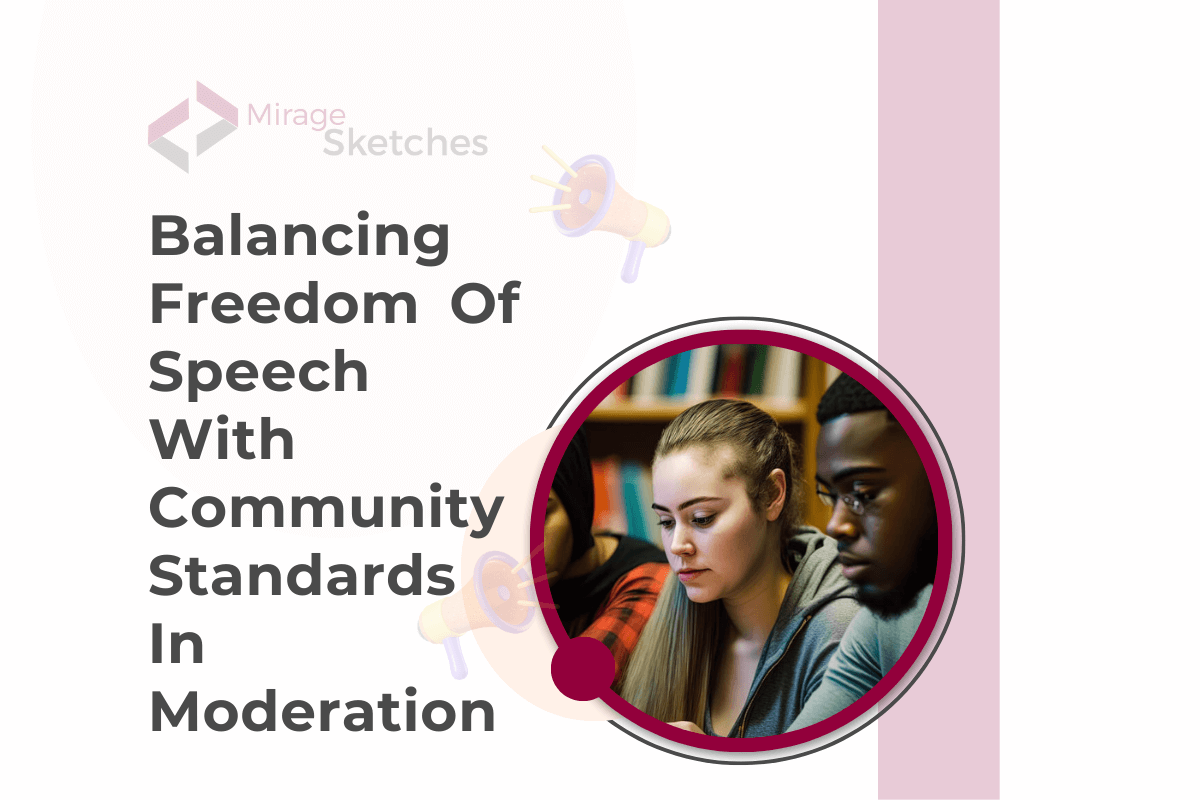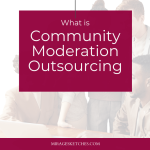Introduction
In our modern digital age, the internet plays a vital role in our daily lives. It serves as a platform where people from diverse backgrounds can freely express their thoughts and opinions, adhering to community standards in moderation.
The free flow of ideas and information on the internet has paved the way for thriving global communication, enabling the exchange of diverse perspectives while upholding community standards in moderation.
However, this newfound freedom of speech has also sparked debates about where to draw the line between allowing free expression and upholding community standards in the online realm.
The Power of Unfettered Expression
Freedom of speech is a fundamental right that underpins democratic societies.
It empowers individuals to voice their beliefs, criticize authority, and engage in open discussions.
The internet amplifies this power as a vast virtual space, enabling users to communicate with millions worldwide.
Social media platforms, online forums, and blogging websites have become modern-day public squares where ideas clash and spread at the speed of light.
This unbridled freedom has played a crucial role in catalyzing social movements, giving a voice to marginalized communities, and uncovering injustices that might otherwise have remained buried.
It has transformed how we participate in civic life, allowing us to connect with like-minded individuals and mobilize for common causes.
The Dark Side of Unrestricted Expression
While the internet’s openness has undeniably brought about positive changes, it has also given rise to various challenges.
One of the most significant concerns is spreading hate speech, misinformation, and harmful content.
The cloak of anonymity the internet provides has encouraged some to indulge in abusive language, cyberbullying, and even incitement of violence.
Misinformation, intentionally or unintentionally, can spread like wildfire and have severe real-world consequences.
With limited accountability and fact-checking mechanisms, it can sway public opinion, disrupt social harmony, and erode trust in institutions.
The Role of Social Media Platforms
As digital communication proliferates, social media platforms have become the primary arenas where the clash between freedom of speech and community standards takes centre stage.
These platforms are responsible for moderating content and ensuring user safety while preserving space for open dialogue.
Moderation policies are crafted to strike a delicate balance, allowing users to express themselves while deterring harmful behaviour.
However, these policies often find themselves at the heart of controversies, with critics claiming censorship and bias.
Striking the right balance is an intricate challenge as cultural, societal, and political nuances come into play.
Case Study
Let’s delve into a real-life example to understand the complexities of balancing free speech with community standards. Imagine “SocialConnect,” a prominent social media platform used globally.
It prides itself on fostering free expression, encouraging users to share their opinions without fear of suppression.
Recently, a user posted content promoting hatred towards a specific ethnic group.
This post gained traction, with many engaging in heated debates. While SocialConnect’s policy prohibits hate speech, they faced a dilemma.
On the one hand, deleting the post could be seen as suppressing free speech. On the other hand, allowing it to remain could spread harmful content and potential harm to the targeted community.
To address this, SocialConnect took a multi-layered approach.
They flagged the post as potentially containing hate speech and limited its visibility. They also provided resources and counter-narratives to debunk the misinformation subtly.
At the same time, they reminded users of their commitment to free expression while urging them to maintain respectful discussions.
The Importance of Transparent Governance
To effectively balance freedom of speech and community standards, transparency in content moderation is paramount.
Social media platforms must communicate their policies clearly and involve stakeholders, including users, in policy-making processes.
Open dialogue can help platforms understand the concerns and expectations of their diverse user base.
Additionally, mechanisms for appeal and redressal are essential.
If content is removed, users should have a chance to appeal the decision, ensuring that inadvertent errors are rectified and promoting accountability in the moderation process.
Empowering Users to Make Informed Choices
Promoting media literacy is another crucial aspect of maintaining a healthy online ecosystem.
Educating users about critically evaluating information and identifying misinformation can help curb the spread of harmful content.
By empowering users to make informed choices, we can collectively combat the negative impact of unrestricted speech.
Innovative Solutions: AI and Moderation
Artificial intelligence (AI) advancements have opened up new possibilities for content moderation.
AI algorithms can quickly identify and flag potentially harmful content, helping platforms scale their efforts to moderate vast amounts of user-generated content.
However, this technology has flaws and has faced criticism for false positives and negatives in content moderation.
To address these issues, tech companies are investing in refining AI algorithms and combining them with human expertise.
This hybrid approach ensures that AI identifies potential violations while human moderators make the final judgment, considering the nuances and context of each situation.
Global Challenges and Cultural Nuances
Balancing freedom of speech with community standards becomes more complex globally.
Social media platforms operate in diverse cultural and political landscapes, where the definition of acceptable speech can vary significantly.
What may be considered humorous banter in one culture could be deeply offensive in another.
Considering regional sensitivities, companies need to adopt localized moderation policies to navigate these challenges.
Embracing diversity in their moderation teams can enhance cultural understanding and lead to more informed decisions.
Public Pressure and Regulation
As concerns about harmful content and misinformation persist, there is growing public pressure on tech giants to take more significant responsibility in content moderation.
Critics argue that self-regulation by social media platforms may not be sufficient to safeguard user safety and societal well-being.
In response, some governments are exploring introducing regulations that hold platforms accountable for content shared on their media.
Striking a balance between ensuring user safety and protecting freedom of expression will require carefully calibrating these regulatory measures.
The Future
The future of balancing freedom of speech with community standards will rely on collaboration between users, tech companies, governments, and civil society.
It is a shared responsibility that requires a collective effort to nurture an online environment where diverse ideas can thrive while harmful content is mitigated.
Users must engage responsibly, considering the impact of their words on others, and be willing to participate in respectful discussions.
Tech companies must continue refining their moderation policies and algorithms while being transparent and accountable in their decision-making processes.
Governments should engage in constructive dialogue with the tech industry and advocate for thoughtful, evidence-based regulations that preserve the essence of free expression while protecting citizens from harm.
The Human Touch
In our quest to leverage technology and AI for content moderation, we must not overlook the irreplaceable value of human judgment.
Human moderators bring empathy, cultural context, and a deeper understanding of the complexities of human communication.
Emphasizing the importance of human moderators alongside technological tools can lead to more nuanced decisions in handling complex content issues.
Investing in training and support for moderation teams can enhance their abilities to navigate the fine line between freedom of speech and adherence to community standards.
Conclusion
The delicate dance of balancing freedom of speech with community standards in moderation is a perpetual challenge.
In the ever-evolving digital landscape, it is essential to remember that there is no one-size-fits-all solution.
Instead, it requires ongoing conversations, continuous learning, and a commitment to creating a healthy and inclusive online space.
As users of these digital platforms, we should be mindful of our actions and words, understanding that each of us plays a part in shaping the online environment.
By promoting empathy, respect, and critical thinking, we can foster a digital world that embraces the beauty of diverse perspectives while safeguarding against harmful content.
The path ahead is exciting and challenging, but with thoughtful collaboration and a shared commitment to digital responsibility, we can navigate this territory with wisdom, ultimately cultivating an internet that empowers all while protecting the most vulnerable among us.





